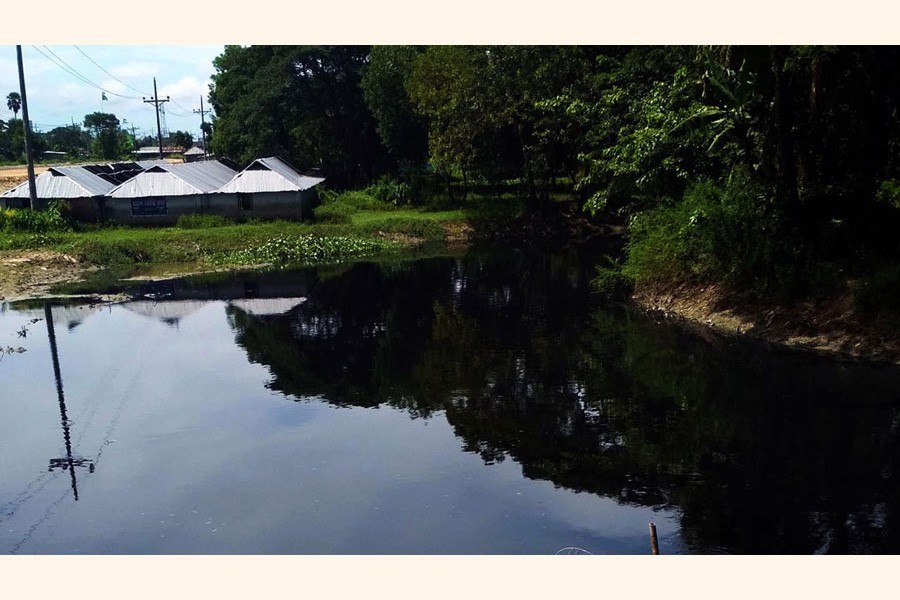Wastes from Cumilla Export Processing Zone, or Cumilla EPZ, have been polluting neighbourhoods affecting fishes and crops, locals and environmentalists say.
Crop yields have also decreased in three upazilas to the south of Cumilla - Sadar South, Lalmai and Laksam, they say.
In Tongirpara area of Sadar South upazila of the district, the water colour of the Dakatia River has turned black and smelly. The situation is similar in the Dakatia river in Lalmai and Laksam upazilas, locals say.
The water colour of canals and beels of Rajapara, Dishaband, Paduar Bazaar and Bijapur has also become black, they add.
President of Bangladesh Environment Movement (BAPA), Cumilla, Dr Mosleh Uddin, says hundreds of acres of crop lands of various upazilas were affected due to the polluted waste of the EPZ.
With liquid wastes from EPZ polluting rivers and canals and other water bodies, many species of fish have already died. What are left there are about to die too, he says.
Liquid wastes that are spreading in neighbourhoods can cause complex diseases, affecting the human health, Mr Mosleh says, stressing the need for resolving wastes problem immediately.
“We have protested against such pollution for a long time but to no effect,” he points out suggesting the relevant authorities’ reluctance of attending to the problem.
Golam Sarwar, chairman of Cumilla Sadar South Upazila Parishad, says he has been talking about the problem for the last 10 years but it yielded no results.
“I have raised the waste problem at the district and upazila development and law-and-order meetings,” he added.
Cumilla EPZ is now housing 37 industries and when it came into being in July 2000, it did not have the central liquid waste refinery.
As pollution was spreading from the EPZ affecting neighbourhoods, locals protested, prompting the authorities to move to set up the central liquid waste refinery.
The project to set up the refinery at a cost of Tk 3.85 million started in December 2011 and it was completed in November 2014.
The waste treatment plant can clean at least 15,000 cubic meters of waste daily, both in chemical and biological methods.
According to locals and environmentalists, the central liquid waste refinery appears not to work as pollution continues.
However, the authorities concerned, pointing to the central liquid waste refinery set up in Cumilla EPZ six years ago, say it has been working well and so there is no scope for spreading pollution from there.
They add that the refinery keeps open for 24 hours and it was also set up in line with the Environmental Protection Act, 1997.
Cumilla EPZ general manager Mohammad Zillur Rahman, “We control our contaminated wastes by ourselves and so there is no scope for contaminated waste of Cumilla EPZ to go into any area, river or canal.”
Shawkat Ara Kali, Deputy Director, Department of Environment, Cumilla, said, "We go to the EPZ waste treatment plant almost every month to test the water.
“However, in our test, EPZ does not seem to have a water problem.”


